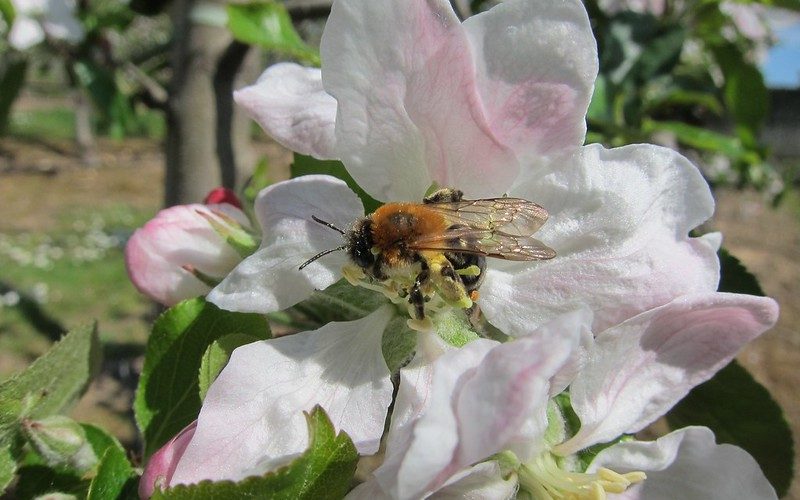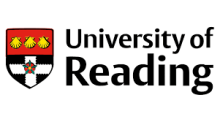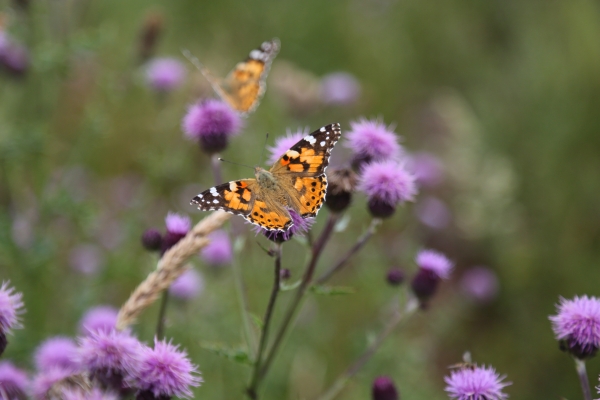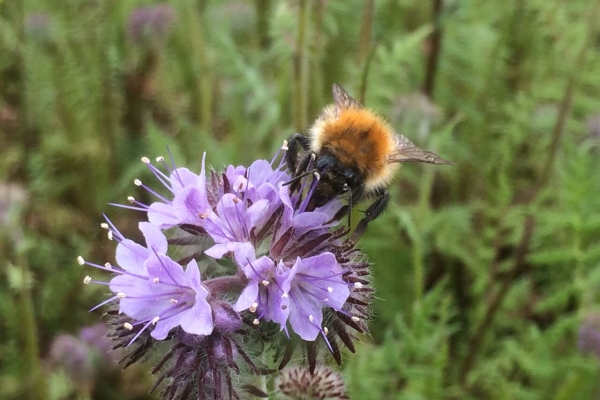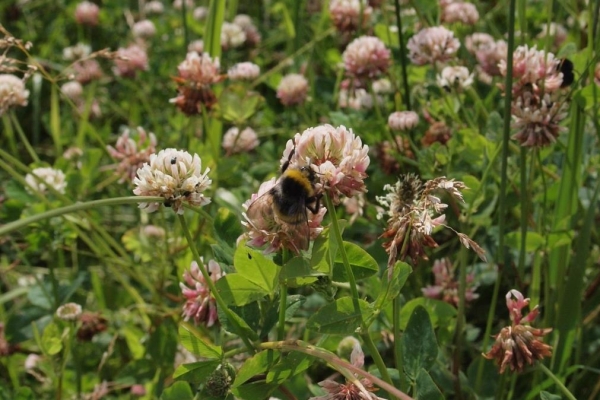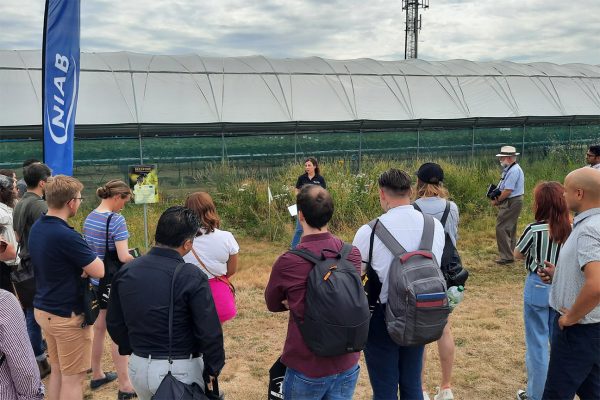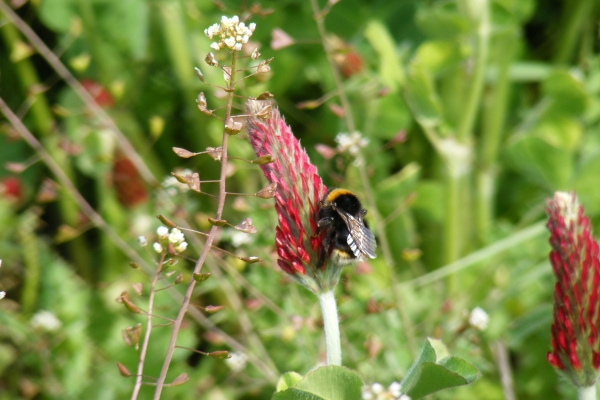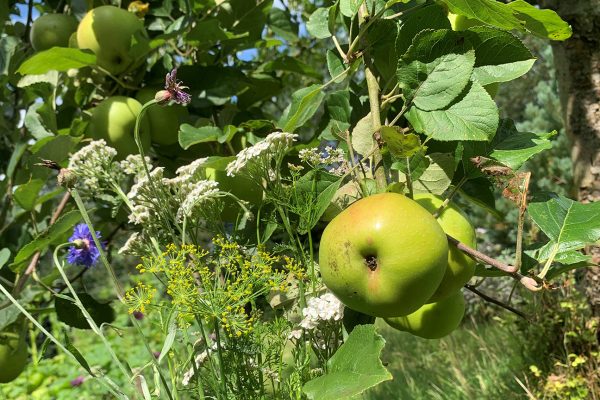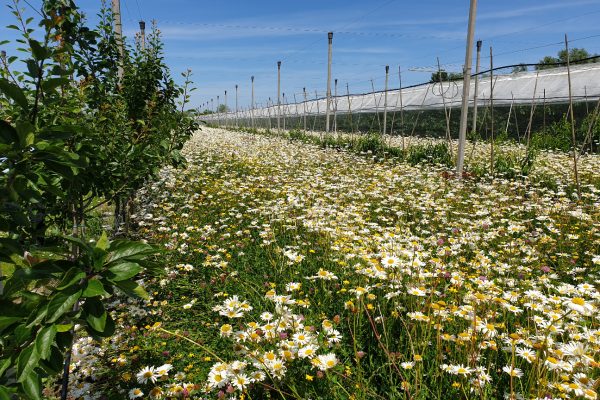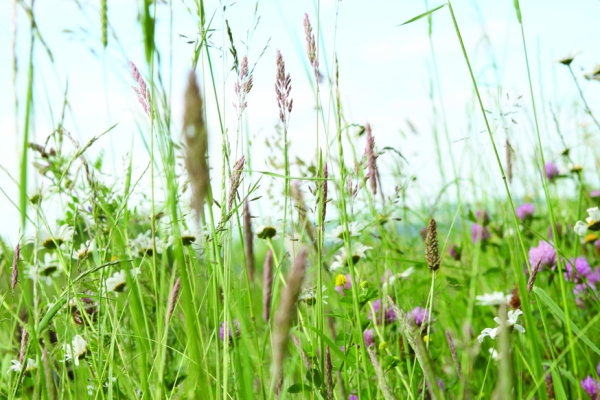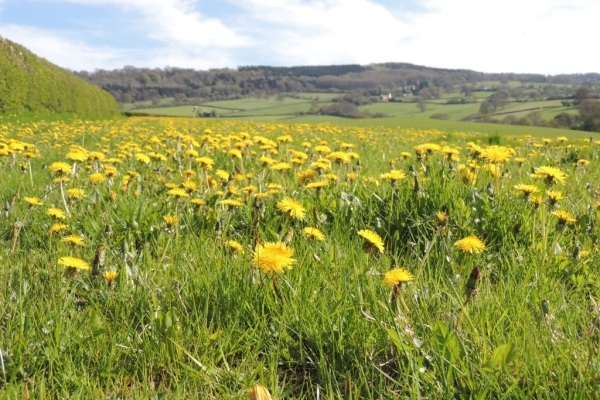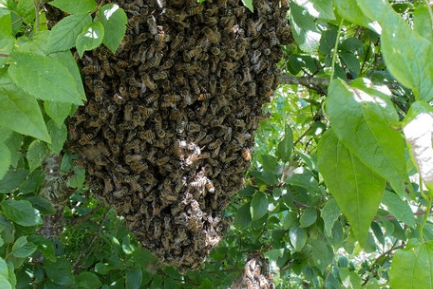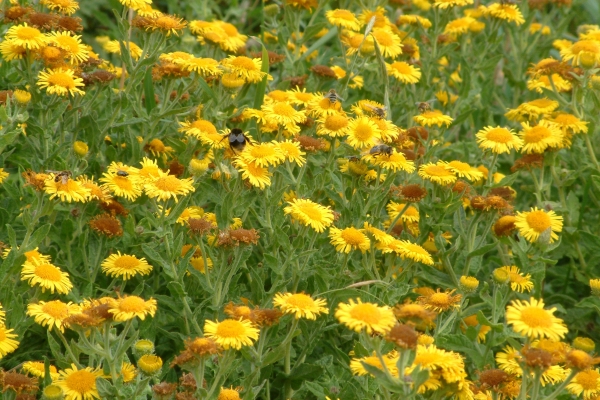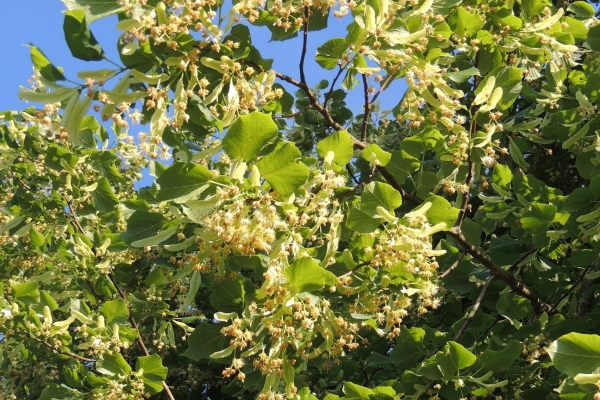Pollination of UK apples: who is doing all the work?
For hundreds of years we have thought that bees are important for pollinating apples, but is this actually true?
I have worked in apple orchards for a number of years now and I rarely see honeybee hives being brought into orchards to do this ‘essential’ pollination. So the question I ask myself is – what is pollinating all these apples? And do we even need pollinators in modern orchards with high yielding varieties anyway?
At the University of Reading we have been involved in a number of research projects looking at insect pollination of different crops including oilseed rape, beans, strawberries, and raspberries, but one of our most studied crops is apples, particularly in orchards in Kent. For a number of years we have been working with other researchers and the top fruit industry to try and better understand the current situation with apple pollination in the UK.
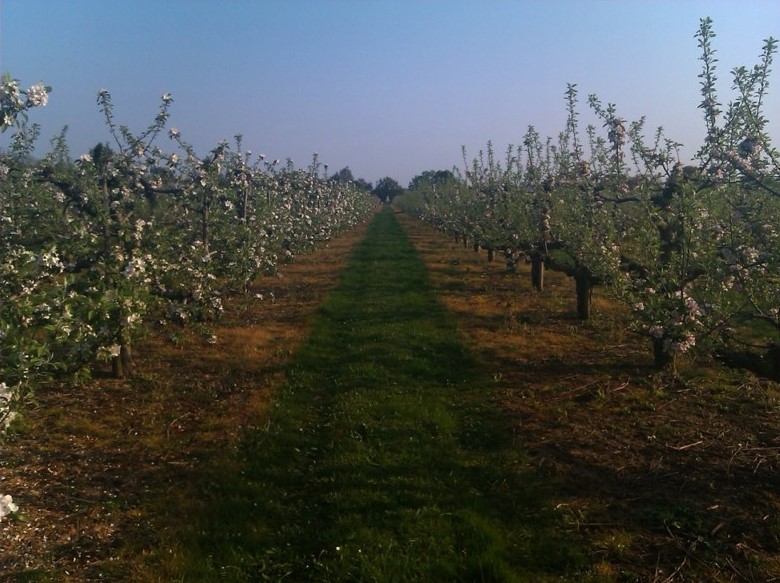
Apple blossom visitors
The first question we asked ourselves was what insects are actually visiting apple flowers and might be doing any pollination? To answer this question we went out surveying pollinators in orchards across Kent. We visited orchards on sunny days in spring (it’s nice work if you can get it!) when apples are in flower, and we recorded and caught insects visiting apple blossoms. The diversity of things we saw was a real surprise, with more than 25 different species of bee and hoverfly seen on apple flowers. And honeybees were remarkably common too, even though most of these orchard had no hives in them! The most abundant species we saw across our orchards were wild Andrenid bees. These guys are solitary bees that live in holes in the ground and it seems orchards are one of their favourite habitats, and they clearly love apple pollen and nectar. So our data shows that lots of different species of insects are visiting UK apple flowers, including honeybees and many other wild species.
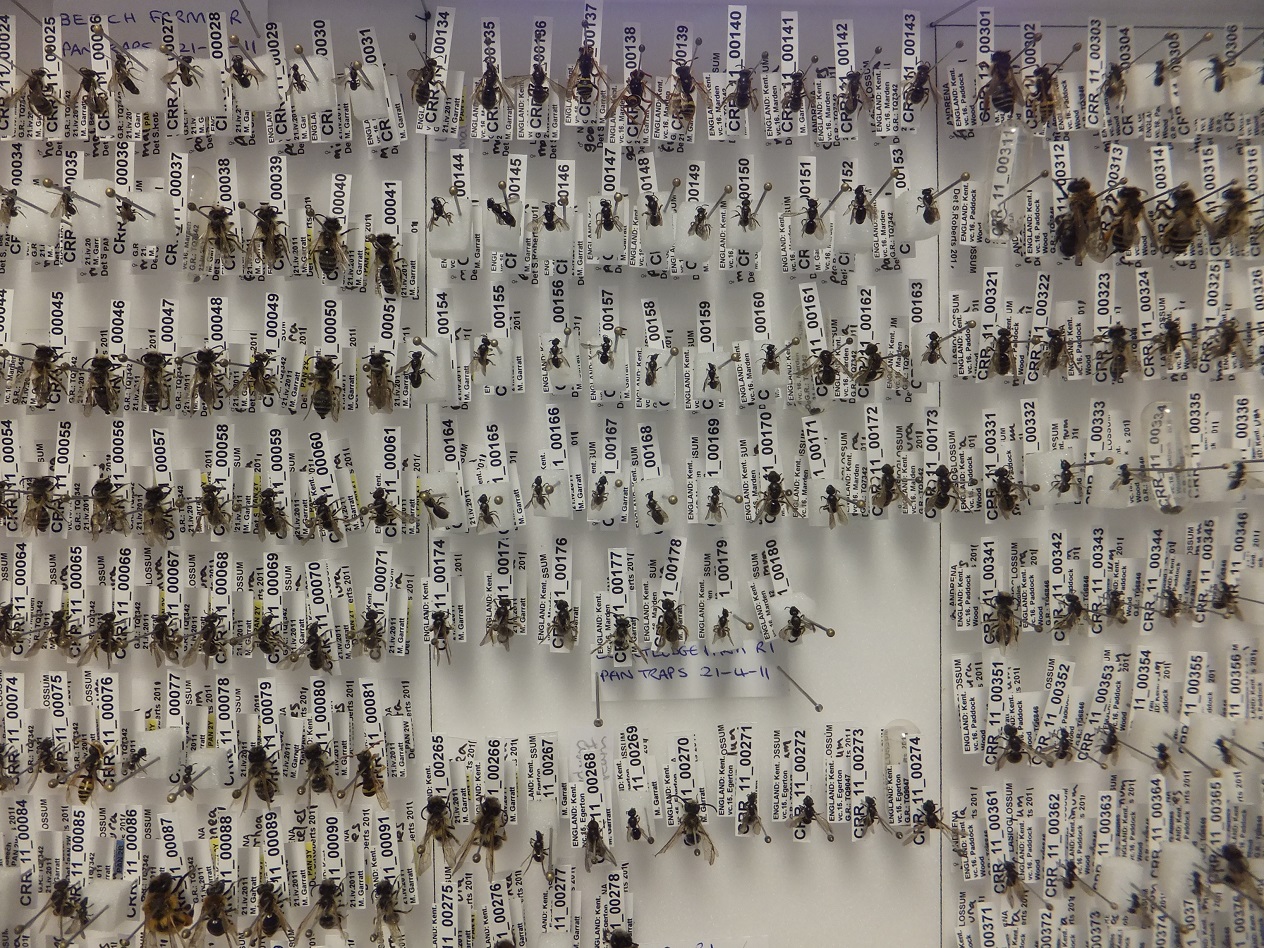
Pinned specimens
How do they help?
So we were seeing bees and other insects on apple flowers, our next question was do they actually help with pollination and are they important for apple production? To test this we carried out a number of experiments in our study orchards. One of these involved putting mesh bags over apple tree branches when they were in flower to prevent any insects visiting the apple blossom. When we looked at fruit set and quality at harvest we found that without insect pollination, you get nearly two thirds less fruit, and those fruit that you do get are of much poorer quality, being smaller and often misshapen. Based on our data we estimate that across the different varieties of apple we studied, insect pollinators were contributing around £10,000 per hectare to production.
Keeping our orchards alive
So it seems insect pollinators are still important in modern apple orchards, but perhaps this pollination is taken for granted by many – particularly given the various threats facing wild pollinators and honeybees alike. But fear not! Neither we nor our industry partners are burying our heads in the sand. Last year we began a new project to look at ways we can manage apple pollination in the UK by redesigning orchards and establishing habitat for wild bees. We hope this research will ensure stable pollination of apples in the years to come, particularly as the threat of climate change continues.
Everybody wants to see our orchards alive with all sorts of different bees and other pollinator species and given that they help produce high quality fruit, having biodiverse orchards is a win-win for all. But can we achieve this? And if so, what’s the best way to do it? This is the aim of our new project and we will keep Agricology updated with our findings…
Dr Michael Garratt is a Senior Research Fellow based at the Centre for Agri-Environmental Research at the University of Reading.
He writes: “I am an entomologist with a real interest in studying the ecology of insects in agricultural environments and this includes the good, the bad and the not so ugly; or pollinators, pests and natural enemies as they are otherwise known. Efficient food production is a necessity for human kind, but I believe we can achieve this a lot more sustainably than we are now, but this will need a better understanding and better management of biodiversity and the wider landscape.”
Learn more:
Agricology features some useful content in relation to encouraging pollinators to benefit UK crops. Have a look at:
- The Centre for Agri-Environmental Research (University of Reading)’s BBSRC-funded video ‘Honeybee shortage for crop pollination’, which gives some important messages to help us target pollinators and ensure food security.
- ‘The benefits of managing pollinators for crop production’, produced by the Living with Environmental Change (LWEC) partnership. It provides practical advice on how we as farmers and growers can manage pollinators and achieve optimum returns, along with pointers for policymakers. It draws on research from the Sustainable Pollination Services for UK Crops project, part of the Insect Pollinators Initiative.
- Natural England’s technical information note ‘Traditional orchards: Wildlife.‘ It highlights how traditional orchards are a haven for wildlife – and provides some simple management techniques to help increase populations of rare and priority species.
(Editor’s Note)
Header image: Solitary bee on apple blossom (photo credit: Sean Webber). Other photo credits: Michael Garratt
